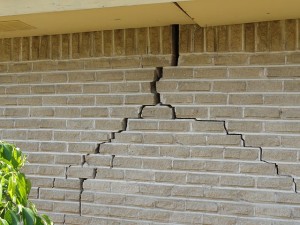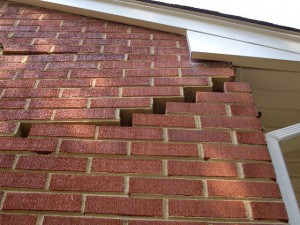An Expert’s Guide to Spotting Home Foundation Issues
When buying a new home, you have an array of options to consider. Some of the questions you might ask are whether or not the area is safe, if the schools are good, if it’s close enough to work and whether or not the property taxes are too high. You might also consider the resale value of nearby properties. These are all very responsible and practical considerations, but you should not stop there. Perhaps a home inspector may give you even more information about your potential home, but they may not tell you everything. It helps to do a little of your own inspection, especially when it comes to scoping out your new home’s foundation. Here is an expert’s guide to spotting home foundation issues.

The dangers of buying a home with foundation damage
Everyone dreams of finding the perfect home with a great yard in a nice area. Yet, that dream could quickly turn upside down if your new home has foundation issues. First of all, there is the cost of foundation repair, (which may not be in your current budget). Depending on the severity of the foundation damage, it could cost anywhere from $1,000 to close to $10,000 for extensive damage. Patching cracks may be an inexpensive option, but that does not address the core issue. Secondly, with foundation damage comes a lot of collateral repairs. Even if you get your foundation fixed, you still have to repair cracked drywall, crooked doors and windows and broken tiles. All of these things add up to additional expenses.
Root causes of foundation problems
To get at the heart of your foundation problem, you need to assess the root cause. Mostly, foundation problems are caused by the instability of the soil beneath your home. When the soil sinks or rises unevenly, it causes the home to move along with it. Here are a few other causes:
Under slab plumbing leaks (more common in older homes)
Poor compression of soil during the building process will cause problems within 1-5 years
Clay soil that continually shrinks and swells. Clay soil is dominant throughout Texas.
Interior signs of foundation damage
While the housing market is on the rebound and new and existing homes sales are growing at record rates, a key factor in determining a home’s value is assessment of the home’s foundation.
When it comes to the basement, here is what you have to look for:
Bulging or bowing of concrete block or masonry walls
Water seepage
Concrete walls show cracks more than 1/8″ wide
Separation between the foundation wall and the sill plate
Uneven posts or puddles of water in the basement or crawl space
In the house, you should look for:
Walls out of plumb
Sticking doors
Jamming windows
Spongy floors
Cracks in the drywall
Non-level floor
Separation between the wall and the ceiling
Cracks in the bricks on the outside of the house
What does this mean?

There are essentially two types of foundation damage: walls shifting due to lateral pressure from swollen soil or a sunken foundation due to soil compaction. Lateral pressure from swollen soil is not as serious as a sunken foundation. It can quickly be repaired by stabilizing the wall. Of course, this is only if it is detected before too much shifting has taken place. If the damage is left unrepaired for an extended amount of time, it means the wall may have to be torn down and reubilt. If block is bowed or bulging, if poured concrete walls are cracked or out of plumb, it means that this is a destabilized wall. In addition, misaligned upstairs windows and doors above the destabilized wall often occurs.

On the other hand, if your foundation drops, this means your home must undertake major repairs. Many times underpinning is the only way to raise and level the foundation while keeping it level. You’ll notice the foundation has dropped because basement floors will be out of level and walls will be out of plumb. There may also be major cracking along floors and walls. Not to mention, seepage is usually present. You’ll also find large gaps around windows and doors, slanted chimneys and significant cracking of bricks or stonework on the exterior.
Questions you need to ask
If you are experiencing any or all of the above, you need to hire a foundation repair service right away. Here are some questions you should ask first:
Do you have membership with the Better Business Bureau (BBB)?
You want the organization you work with to be a member of the BBB because it is a consumer and contractor protection organization. The BBB can provide both mediation and resolution services should they be needed. It also lists business contact info, license numbers, standing and rating.
Is your company insured?
The last thing you need is for something to go wrong and it not be covered by insurance. For starters, general liability and workers compensation is a must have. Also, you should expect your contractors to provide proof of insurance before the commencement of work.
Can you provide references?
If you have never worked with your contractor before, it helps to have insight into their work history and client satisfaction ratings. References should be made readily available upon your request.
Do you offer warranties?
The best warranty to get is a lifetime warranty. This can certainly help with your peace of mind. Ask your contractor what types of warranties they offer for their work. In addition, find out of there are any additional costs.
Whether you decide to live in your home for the rest of your life or want to sell it a decade from now for a profit, one of the most significant features is the foundation. If you don’t understand how to spot home foundation issues, then it may be too late to fix by the time you hire a contractor. Not to mention, if there is only minor damage, you can spot it right away and address the issue before the problem exacerbates and costs pile up.

